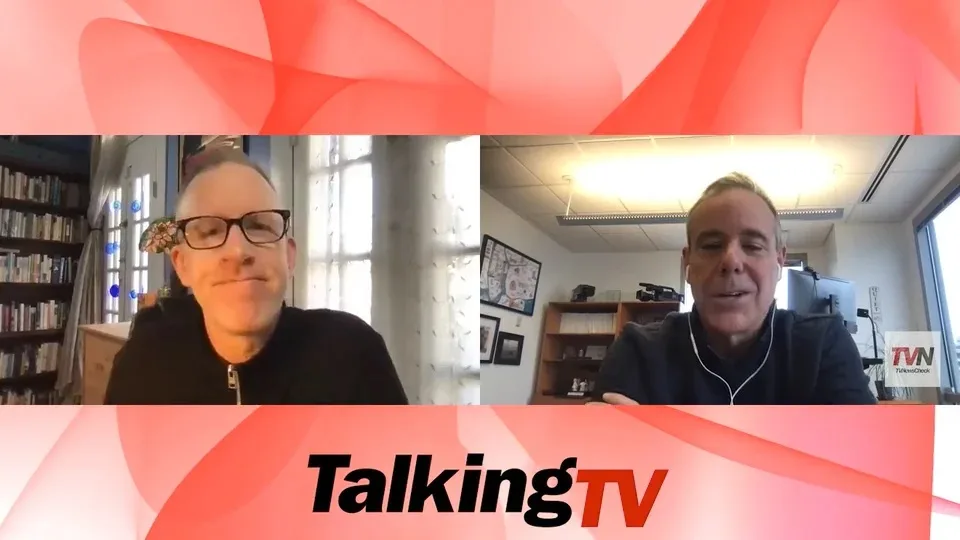We Need To Talk About Local TV’s Producer Shortage

I wish I could tell you the producer shortage in our industry is fixed and we can all move on to other pressing matters, but I cannot. While every broadcast group is trying different tactics to recruit and retain producers, over the past 18 months owning Talent Dynamics I’ve seen the worsening effects the lack of producers, EPs and assistant news directors have on all markets, especially mid-size and smaller.
In 1997, I was a 6 p.m. producer in Pittsburgh. I still had graphic artists, although we were not ordering many same-day animations back then. We had a full control room with a director, TD and audio operator. We had videotape for playback, we had only one non-linear editing suite and we still had editors. The job of a producer was simpler then. They focused on producing, creating the rundown, writing the scripts and providing the context of why stories were important and in a newscast in the first place.
Today, the world of a producer includes all that, plus creating their own graphics, editing their shows, putting automation codes into scripts and transcribing sound bites because in many cases they don’t have associate producers or writers.
We have also added so many more newscasts. The 90-minute news hole is now a two- or three-hour-plus news hole in the early evenings, so we need more producers to cover that ground.
All the while, until recently the pay had not moved as well. Talking just this past summer with a news director, I learned they were still paying producers the same salary I had in 1997. To their credit, that particular station has since dealt with the pay issue, but I am sure they are not alone.
So, what are possible solutions? The first and most obvious is we need to value the producer position more with increased pay. What we pay producers in many newsrooms is less than what we pay reporters. Can a station get a newscast on the air without a reporter? Yes. But can it get a newscast on the air without a producer? No.
It’s possible that emerging technology like AI can help deal with graphics, pulling soundbites and versioning digital contributions, but will that take enough off producers’ overfull plates?
GMs and news directors need to find out what makes their producers tick, what motivates them to do such a difficult job. Perhaps there’s a way to give producers a day to work on other projects instead of their normal shows. Maybe that means field producing, working on elections or some other special project that is important to them.
We also need to recognize that not enough college students are eyeing producing careers. This is an issue stations can tackle in-house by giving the newest hires a path to growth and launching producer training programs. The industry needs to invest in coaching for producers like it does for on-air talent. New entrants need to know they are being invested in and can grow.
The producer shortage has been years in the making and it won’t be solved in a month or a year, but the actions broadcaster companies take today will pay off in the long term, and it can’t afford to sidestep the problem any longer.
Gary Brown is the CEO/Owner of Talent Dynamics, which offers broadcast TV news placement and talent coaching.































Comments (10)
Former Producer says:
October 17, 2023 at 9:02 am
Here’s the problem. Everyone wants to talk about the producer shortage. Nobody — at least those in the executive ranks — is willing to do anything about the producer shortage.
I am intimately aware of the issue. Just look at my username. I spent a long time producing news in markets small and large. Even in a top-ten market, I had to produce an hour-long show on my own, without any associate producers and writers, while my news director harped on the producers about missed lunch breaks.
Perhaps some of you reading this also saw Bob Papper’s op-ed in TV News Check regarding burnout. He talked about a now-former producer at WCSC, the Gray-owned CBS affiliate in Charleston, SC, who decided to leave the business after just one-and-a-half years. How bad are things getting when the TV news business burns out employees in less-than two years?
It is long past time to talk about the producer shortage. In fact, I think the ship has sailed! This is the new normal for the TV news business. But don’t act surprised. The industry’s overall arrogance towards its employees in the past two decades is to blame. Gary, you even had a chance to be part of the solution when you were news VP at Meredith, but instead it seems you decided to wait until AFTER the Gray-Meredith merger to publicly point at the elephant in the room and ask, “Oh no, won’t someone please think about the producers?”
JoMomma says:
October 17, 2023 at 9:08 am
I agree with Former Producer. The ship has completely sailed and good luck filling your newsrooms with good talent. As a former anchor/reporter, I see the crisis in the TV news industry is caused by two main problems: the terrible working conditions/low pay and the fact that NO ONE coming out of college event watches local news. There used to be a gravitational pull to TV news, a cool factor. That is no longer the case. Back in the day when I would walk into a room, people would recognize and respect you. Now your lucky if you don’t get something thrown at your head.
Nick Lawler says:
October 17, 2023 at 9:21 am
Gary, You are 100% on target. When I was a producer from 1972-79, producing was a dream job. A mix of creativity and editorial oversight. Many years later as a consultant, I remember a a group manager proclaiming the benefits of computers and how they would streamline operations—combining graphic creation, video editing, line-up formatting and more into one position–the producer position. At the time–mid 90’s–I thought this would lead to a disaster. The producer’s job would become drudgery. Nearly 30 years later my prediction has proven true. No one wants to be a producer. And with good reason. There are two solutions. As you say, increase salaries. But just as important: reduce the job responsibilities and stress. Bring back creativity and editorial oversight to the producer position. Leave the assembly work to an associate producer or others. Certainly more discussion is needed on how best to accomplish these goals. But until the crisis is addressed it will not be solved.
Nick Lawler
Retired Vice President and Senior Consultant
Magid
OldSchool says:
October 17, 2023 at 11:34 am
Good points Mr. Brown but this has been a problem far too long and like they say.. “that horse has left the barn”… Most people working in broadcast (except the talking heads) deserve more money but this problem with producers is really about taking all the resources away and asking the producer to now do every job. More money will help pay for their monthly apartment rental but the burnout and lack of a creative newscast will not change. In most medium or small markets you have the anchors who do not even help write the news let along do any reporting and then throw in recent college graduates who do not even watch local news and we wonder why the producers are leaving. Some of us remember when local news was a true commitment.
Gary Brown says:
October 17, 2023 at 1:50 pm
You’re right I could have but I also was dealing with a company that was being sold at the time. There was no fixing anything with that process going on.
Former Producer says:
October 17, 2023 at 6:14 pm
You still chose to not address the issue, Gary. That’s on you, and like it or not, your inaction contributed to the problem.
As for the producer shortage? Goodness gracious, TV news directors and executives alike have been complaining about this for the past two decades. The American Journalism Review did a story on this in November of 2001. The sentiments expressed in that story are largely the same as what’s being expressed now.
And yes, news managers were wringing their hands about terrible salaries in 2001. Ellen Crooke, Tegna’s senior VP of news who then was a news director in Indiana, is quoted by the AJR as follows: “It’s a frightening tale that our business is willing to put up with because of a lack of trained producers and a lack of budget to pay experienced people well to do this.”
I appreciate that many former news executives, news managers, and consultants have decided it’s time to stop being silent about this long-running problem. But it is long past time to talk about the problem. It may very well be past time to solve the problem. Is the proverbial ship worth saving when most of the passengers and crew have already abandoned ship? Or, to use an acronym that the younger crowd likes to use, the TV news business is in the “find out” part of FAFO.
Google that if you don’t know what FAFO means.
Dave Kovic says:
October 18, 2023 at 7:19 am
Hank Price wrote a related about overall TV burnout back on July 10th. I said it then. Those responsible are sitting comfortably as the leaders of all these companies. People like Perry Sook will continue to turn a blind eye and demonstrate sheer apathy to this problem. “Former Producer” is spot on correct. If broadcast leadership refuses to face this crisis, then it’s time to Unionize.
Jim9034 says:
October 18, 2023 at 2:42 pm
The industry is also suffering from a plain old lack of leadership. The producer issue is just the tip of the spear.
Look at the CBS O&O’s. Their solution is to overstock a bunch of new managers. Everyday there is a new C-suite manager announced. They have managers for everything.
But none of these managers actually work on a newscast. Some of these new managers worked in local CBS newsrooms, but failed to solve the producer or other staffing problems. They didn’t improve the ratings either. They just fail their way to new management positions.
And the issue isn’t just in producing. Who wants to be a photographer anymore? No one. You can make more at Burger King and have less stress and less hours.
Talent, especially male talent, is hard to find. No one wants to go into an industry where you can’t make money. Most people who are hired today are more interested in branding themselves and keeping a live TIkTok feed going while they are on air than they are in covering news.
The people currently running local TV news are like their print counterparts 15 years ago. They are just managing the descent. Flooding the zone with managers will not work.
Bgretchk says:
October 18, 2023 at 7:19 pm
While I believe there’s a lot of good stuff here, I think part of this also falls on news management. While they may not be getting as many applications as before, my hunch is they are still getting some qualified applicants and are not doing anything with them. Could it be because they’re too picky with candidates? I don’t know but if that’s the case, it needs to stop otherwise you’re not gonna get good quality candidates.
Former News Producer says:
October 31, 2023 at 11:32 pm
I worked at a station as a producer for 15 years and would have stayed longer. The pay is far too load and workload too high. Even if pay was quadrupled, it wouldn’t be enough to put up with the stress. The workload is toxic and detrimental. I couldn’t in good faith recommend a career in local TV news to anyone. As a matter of fact, I would actively discourage it.